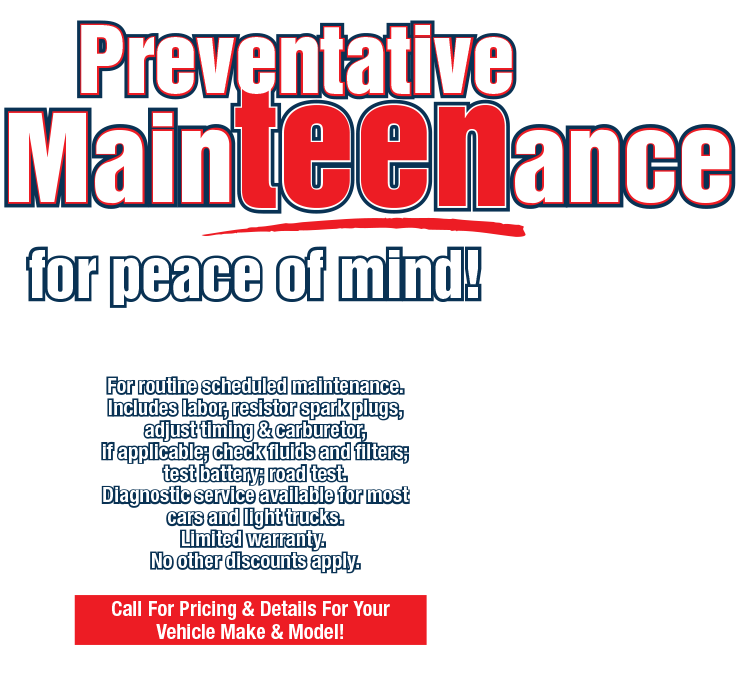Always on Guard (TMPS)
May 4, 2025
One of the most important things you can do to keep your vehicle running safely is to make sure your tires are properly inflated. If one or more is vastly over- or underinflated, that has the potential to cause major handling problems and may result in a dangerous accident.
All vehicles in recent years are equipped with Tire Pressure Monitoring Systems, or TPMS. One system uses small sensors in the tires that continually check the pressure in each tire. That sensor sends a signal to computers in your vehicle which turns on an instrument panel light warning of low pressure when at least one is very low. Or it may update a numeric reading on your instrument panel which gives you an approximation of how many PSI (pounds per square inch) of air is in each tire.
Another system works with your antilock brake system to measure the size of your vehicle’s tires. When one wheel is going faster than another, it will spin faster. A computer sees that and alerts you that tire’s diameter is smaller than the others and therefore must be underinflated.
No matter what system you have, it’s also helpful for you to know how much pressure each tire is supposed to be inflated to. You can find that on a label on the driver’s side door sill. In addition, the TPMS system should not be used as a substitute for checking your tires with a tire gauge since the TPMS accuracy usually isn’t quite as precise. Keep in mind that tire sensors can fail, so each system acts as a backup for the other.
Since many vehicles these days don’t have spare tires, it’s good to know that your TPMS can warn you if you have a leak in one of your tires. If you get a low-pressure warning, many systems will tell you which tire is low, so you can do your own visual check. Often you can see if you’ve picked up a nail or a screw if it’s sticking out of the tread or near the sidewall.
Being able to receive an early warning from your vehicle of abnormal tire pressure may give you a chance to safely drive to a service center before your tire slowly goes completely flat (which can ruin the tire and badly damage the rim). It also may ultimately prevent you from being stranded somewhere with a flat tire or, most importantly, having a sudden blowout on the road.
Car Fix Louisville
5411 New Cut Road
Louisville, KY 40214
5023652323
Need Service?
More articles from Car Fix Louisville - Formerly Eagle Tire & Auto Center

Smooth Operator (Shock Absorbers)
December 14, 2025
When you are comfortably headed down the road, you may not realize how many of the imperfections in the driving surface are being smoothed out, so you hardly feel most of them. You can thank your shock absorbers for a lot of that comfort, and its important to make sure you keep your shocks in go... More

The Light Nobody Wants to See (Check Engine Light)
December 7, 2025
You've probably had your Check Engine Light go on. Then it goes off and you figure, hey, whatever the problem was, it's gone now and I don't have to worry about it. Well, the problem may have gone away and it may not have. Your vehicle likely has one of these warning lights on the instrument pa... More

Free Money (Almost) (Fuel Saving Tips)
November 30, 2025
You spend a lot of money on a vehicle, probably the most money you'll spend on anything except a house. But the spending doesn't stop after you've bought it. It goes into things like insurance, repairs and fuel. One good piece of news is that you can cut down the amount you spend on fuel if yo... More







